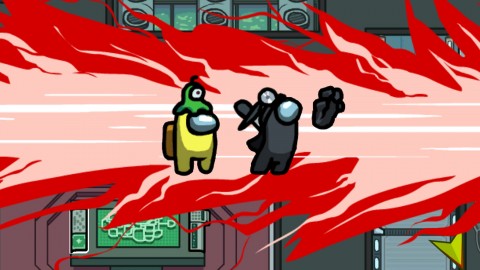
If the emergence of ‘cheugy’ fashion or TikTok debates over ‘fifth-wave’ emo weren’t enough to remind you, adulthood is well and truly afoot for millennials. If you can remember the glory days of indie discos and Skins parties, there’s every chance that your mid-30s are beckoning, or that you might be raising children of your own. Time comes for us all, no matter how many “surely that can’t have been 20 years ago?” exclamations you find yourself making.
During the most fruitful years of British indie, Bloc Party frontman Kele Okereke frequently knew how to make music that catered for both the anxieties and joys of growing up – ‘fuck-it’ rebellion rubbing up against observational politics, love stories set to frenetic guitars. It’s a balance he’s always been good at, and one that he’s only leaned into as he’s grown older, stretching his work from the group consensus of a band to follow new paths of performance art.
The last year of isolation and unrelenting nervousness has caused fight-or-flight within us all, and as such, ‘The Waves Pt. 1’ finds Kele working entirely alone for the very first time, fitting trips to his music room around the very real responsibilities of being a stay-at-home-dad to both a baby and a toddler. Drawing influence from film scores and classical music, it’s a record that is minimal by both intent and necessity, each demo quality-tested on late-night walks around London. As a result, it feels suitably cinematic – light on words, heavy on meditation, but always finding a way to come back to the shore.
In-keeping with its seafaring theme, a found-sound intro not dissimilar to a spa playlist sets the tone, though the first sung track on the album, ‘They Didn’t See It Coming’, has Kele laying out a playful story in full CBeebies bedtime voice, lilting with all the inflections of joy and wonder that one musters to lull children to sleep, almost envious of their innocence: “So here’s to never growing up.” It’s more mature than it sounds, flickers of graduating guitar and messy pools of chanted vocal-percussion giving it a brightness and vitality.
For a man who so often uses his music to channel angst, it a pleasingly buoyant start, but such joy isn’t to last. ‘The Way We Love Now’ speaks of infidelity and distrust (“did you really think I wouldn’t notice / The way you look at him?”), each stabbing note prickling with quiet indignation. An awful lot seems to be floating in Kele’s headspace – escapism, family, loss, hope – and this gives the record a tumultuous quality. On ‘Intention’, he seems to recognize his own struggle, using a field recording from a mindfulness and anxiety-management class which encouraging the listener (and presumably Kele himself) to give shape to their fears in order to figure out how to challenge them, a sense of foreboding underlying its modulating synths.
Still, it takes a lot to pull Kele completely away from the dance floor. ‘SmallTown Boy’ subverts the euphoria of Bronski Beat’s dance original until it has more in common with the wintery atmospherics of London Grammar or Daughter, utilising the higher end of the singer’s falsetto. You’re almost willing him to burst forth into a full disco diva wail, but he stays impressively restrained. It’s not the only moment of nostalgic novelty on the record – ‘How To Beat A Lie Detector’ goes noticeably ‘Cotton Eye Joe’ in the choruses, while the instrumental ‘Dungeness’ conjures up borrowed-from-blockbuster DVD menu atmospherics. It’s pleasant on the ears, but not especially rewarding for the listener.
Though some of the instrumental interludes might be a little self-indulgent (what pandemic-made art isn’t?), there is plenty here that does feel fully formed. ‘Nineveh’ sparkles with the sort of end of a relationship stocktake that fuelled so much of the best Bloc Party work, gaining piano pace in a crescendo of emotion: “He said boys like me don’t just grow on trees / But lately I’ve been thinking all about the evergreens”. It would be a perfect soundtrack to a quirky indie film, where everyone waits with bated breath to see if the lovers reunite at the end. Whether they do or don’t is almost beside the point – this is a record that takes solace in the way things are, Kele even finding gratitude in the cracks of despair.
It seems fitting for the unpredictability of a pandemic year, and fitting for a prolific artist who was well overdue the opportunity to take stock. Adding interesting new textures to his playbook, it’s perhaps helpful to think of ‘The Waves Pt.1’ as a soundtrack to something bigger, the wading out to sea before the full immersive plunge. By the time ‘Part 2’ arrives, Kele will likely have found even more ways to expand his horizons.
Details

Release date: May 28
Record label: KOLA Records / !K7
The post Kele – ‘The Waves Pt. 1’ review: a meditative pandemic-induced experiment appeared first on NME.








